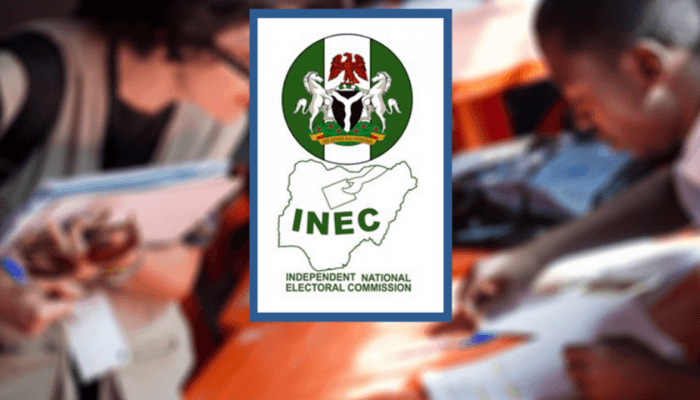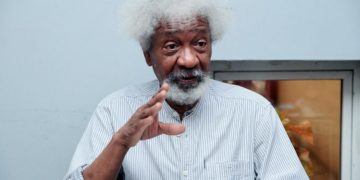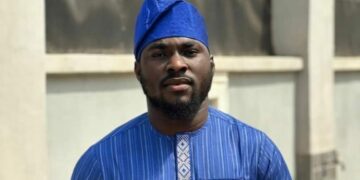Thirty-two years after the June 12, 1993, election crisis, which led to the annulment of the presidential election believed to have been won by the late Moshood Abiola and his running mate, Babagana Kingibe, stakeholders have bemoaned Nigeria’s faulty electoral system.
They argued that electoral irregularities and legal challenges, which the General Ibrahim Babangida-led military government cited for annulling the election results on June 23, 1993, have continued to characterise electoral processes even after three decades.
Speaking with LEADERSHIP Weekend, the executive director, CREAP Africa Initiative, Sylvanus Udoenoh said since the June 12, 1993 debacle, many aspects of Nigeria’s democracy have remained unchanged or have regressed due to a plethora of challenges.
He identified some of these challenges as electoral malpractices, insecurity and poverty, lack of accountability, weak institutions, polarisation and identity politics.
Udoenoh said, “Nigeria’s electoral process has continued to be plagued by issues like vote buying, manipulation, and violence, which undermine the credibility of elections. It is why we are advocating for a better constitution and electoral framework to safeguard Nigeria’s hard-won democracy.
“Institutions like the Independent National Electoral Commission (INEC) and the judiciary face challenges in maintaining their independence and effectiveness. The actions and inactions of political players and key government officials have weakened INEC and the judiciary.
“Ethnic and regional identities continue to play a significant role in Nigerian politics. This has polarised and divided the countrymen and women. People are now beginning to think in terms of state of origin, region and or ethnic groups before making political decisions, participating in politics, or even allocating resources. This is wrong.”
According to him, the issues highlighted above reflect the struggles in Nigeria’s democratic journey and the need for continued reforms and efforts to strengthen democratic institutions and practices.
“If nothing is done to protect this democracy, it will not serve the people, and if it does not, this country could fail,” he said.
For his part, the founding executive director of the African Centre for Leadership, Strategy & Development (Centre LSD), Dr Otive Igbuzor, said a lot of things have gone wrong from June 12, 1993, to date, which have continued to scupper the country’s electoral system.
According to him, at the return of democracy in 1999, many people with democratic values did not believe that the transition was genuine, and they did not participate, leaving the space for charlatans and questionable characters to take over the reins of power.
“Senator Nuhu Aliyu in 1999 stated on the floor of the Senate that most of the Senators were criminals that he had investigated in the past. So that is one major flaw that laid the foundation for criminal leadership in Nigeria. That has been consolidated with a growing trend of elite capture of the state, and it’s not a Nigerian phenomenon; it’s a global phenomenon.
“In elite capture of the state, the elite now influence media, influence judiciary, influence legislature, influence who is even in the executive. So there is power consolidation, and that is what has been going on,” Igbuzor said.
He said the solution to the nation’s electoral challenges is participation and the genuine desire for development, as participation will keep stakeholders, including INEC, in check.
“So, what is the solution? Two key things: first, democracy is democracy only to the extent that people participate. So, citizen participation is key, social movement mobilisation is key, and women’s participation is key. That is one level. With this level of participation, we will not have less than 90 million people electing a president for a country of 200 million people.
“The second leg is the need for all well-meaning people, all good people, all religious people, all god-fearing people, who are interested in development to come together and put development on the agenda – because one of the challenges is that development is not on the agenda at federal, state and local government levels.”
He identified corruption and ignorance as the key factors in political discourse.
“There are many reasons for development not to be on the agenda. One is a corruptible transaction, but another is sheer ignorance. There are many people in ministries, departments and agencies. If you give them a budget, they don’t know how to translate it into people-centred development.
“So, this is what I think that is necessary for our country.’
Speaking on political participation, he said: “ When there is participation, the electoral body will be put in check. When there is participation, look at what happened in Ghana the electoral body had no choice because you know the political parties were well organised. You know everyone had the results, not now, when you go to the polling unit, the ruling party will buy all the political parties, and they don’t have agents.
“Every party has an agent; they have results in the units. Every party is collating the results at their headquarters, so you cannot do anything. If you do anything, everybody will be on the streets. That’s the only way. All these appeals to INEC people to be honest and politicians not to rig the election are just exhibiting stupidity; it will not happen,” Igbuzor added.
A lecturer in the department of political science, Bingham University, Karu, Michael John Agbo observed that the country fared badly in its electoral system since the June 12, 1993 saga as polls have continuously been marred by irregularities and other anomalies.
The scholar said violence and mayhem, as well as religion and ethnicity, were responsible for Nigeria’s chequered electoral history post-1993, which combined to propel voter apathy.
“You are right to say that 32 years after, our election is still shaky. So, what went wrong is that, that election of June 12, 1993 was dubbed to be one of the freest and the fairest elections. Not because it was not marred by some irregularities, but years after that election, no election has been better than that one.
“When you asked how we have fared in our democratic journey, I would say we have fared badly. Unfortunately, our electoral system seems not to have measured up due to some factors. And I’ll highlight two of those factors, which are key to why we’ve not gotten our electoral system to measure up to that election. One is violence and mayhem… politicians want to win it at all costs. And why do they want to win it at all costs?
“You will agree with me that in our election, for you to contest elections in this country, you have to spend a lot. Even in the councillorship election at the local government level, if you don’t have up to a couple of million in your pocket, you cannot contest such an election.
“So, when someone goes for that kind of election, spending millions or even billions to win the election, do you think that kind of person will stay quiet, and not do anything? That kind of person can go to any length to win the election, because if he fails to win, he will go broke, and if he goes broke, he’s out of the political circle. So, the use of money and violence has caused our electoral system not to measure up.
“The second factor is the factor of religion and ethnicity. Our political class has successfully used this factor to divide and rule us. When you are members of the same ethnic group, they will bring the issue of religion. When you are members of the same religion, they will bring the issue of ethnic group to divide you to pull some votes out or to make sure the other candidate does not get votes from you.
“So these two factors have contributed to why our elections have always been marred with issues, especially irregularities, issues of people not going to vote. Because when there is violence in an election, the average Nigerian man will not want to throw himself into such violence. He would rather stay at home than go to the polling unit where he will be met with violence,” Agbo said.
He recommended the adoption of electronic voting, a change of the winner-takes-all mentality and massive voting as the panacea to an improved electoral system.
“There is no magic to this thing. This electronic voting system that they brought, this BIVAS machine, is a game changer. Only if we can make a regulation so that INEC can stick to its use. It accredits voters and should transmit the votes in real time at the end of the voting.
“Again, this winner takes it all, our zero-sum game should not be the case because when you do that, it means that a person who spends money will do all it takes to win it all cost. So at the end of the day, you see that the election will be marred with serious irregularities.”
A constitutional lawyer, Julius Atonkor, corroborated the position of earlier speakers. According to him, 32 years after the June 12, 19993 debacle, Nigeria’s electoral system has been deteriorating because the political actors’ propensity to break electoral laws persist.
Atonkor said while both the 1999 Constitution and Electoral Act, 202 as amended, made explicit provisions for electoral offences and their attendant penalties, they are hardly enforced,
He called for the establishment of the Electoral Offences Commission to address those issues.
“Why nothing has changed in Nigeria’s electoral system since June 12, 1993, is because of the persistent tendency of the actors to break electoral laws. The Constitution and Electoral Act, 2022 made sufficient provisions on electoral offences which cover violence, vote-buying and other anomalies.
“Though there are instances of persons who brazenly committed such offences, they’re hardly brought to book because INEC claimed it has other enormous responsibilities. To this end, only the establishment of the Electoral Offences Commission can solve this issue, which is a major factor for our deformed electoral system,” he said.











